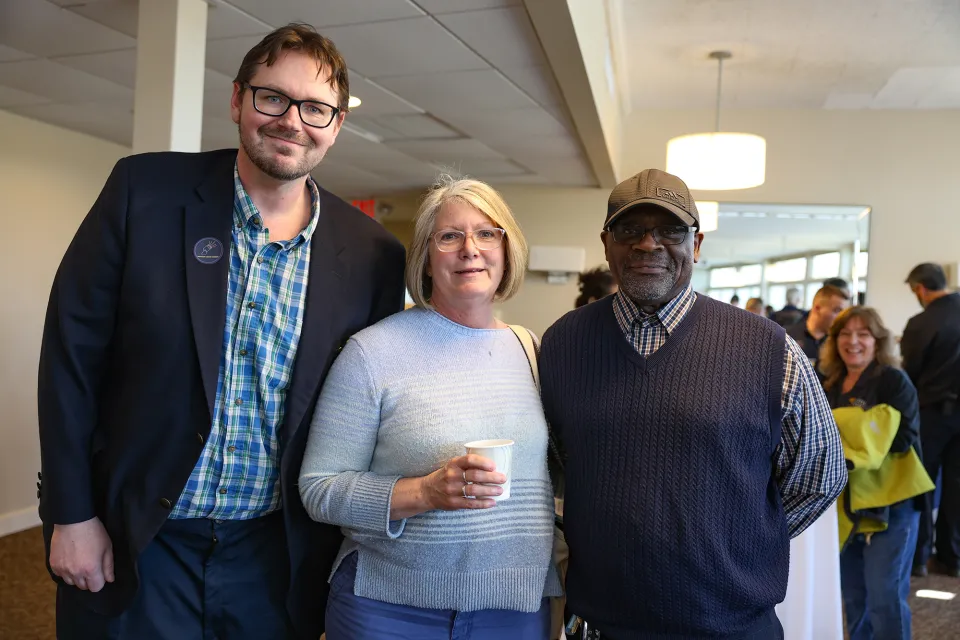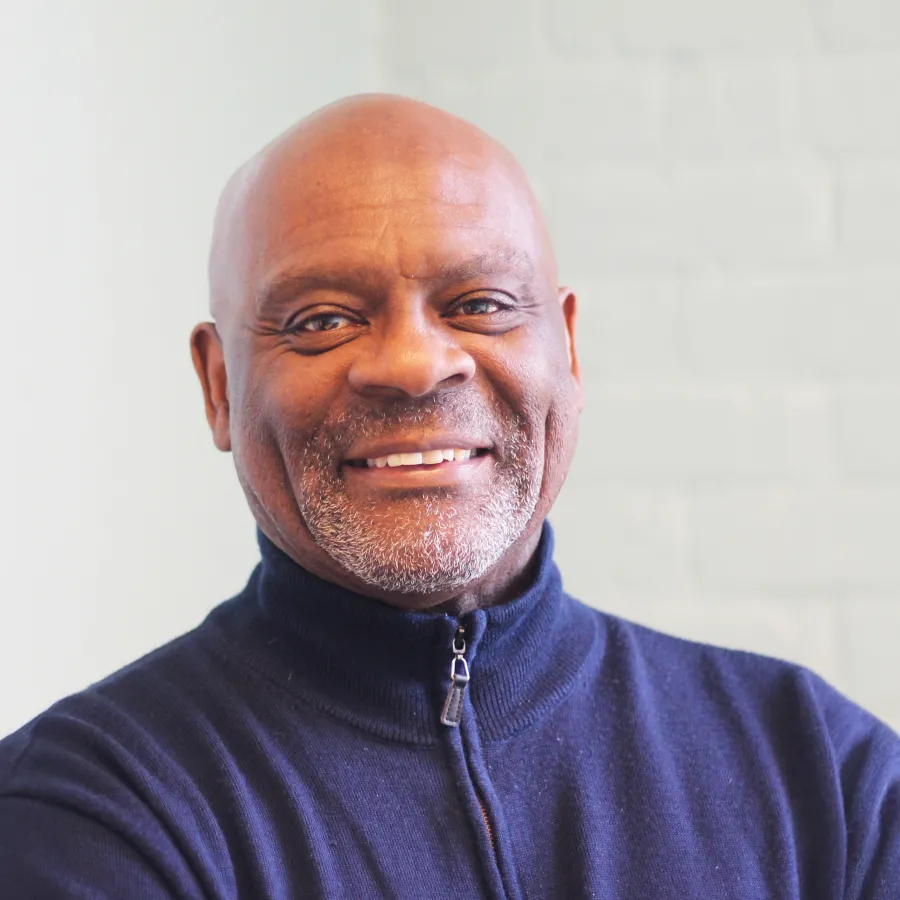Seeing Safety in Community
Campus Life
Chief Jimi Nealy is on a mission to bolster connections between the campus safety department and students, faculty, and staff
Photo by Linnea Duley ’16
Published June 2, 2025
On one wall of Chief Jimi Nealy’s office at campus safety headquarters on West Street, the word “ubuntu” is displayed on a white board.
An African concept expressing humanity and interconnection, the term sums up Nealy’s approach to his role as Smith’s chief of campus safety.
“Ubuntu means ‘I am because you are,’” Nealy says. “I see myself as a facilitator here to train and guide people. As the public safety department, we are part of the Smith community—not separate from it.”
Nealy brings more than four decades of experience in law enforcement to his position at Smith, including stints as a Connecticut state trooper, director of public safety for the Bridgeport Public Schools, and as assistant chief for public safety at both the University of Hartford and Quinnipiac University.
He earned a bachelor’s degree in political science from Central Connecticut State University, a master’s degree in organizational leadership from Quinnipiac, and is working on a doctorate in educational leadership and social justice from the University of Hartford.
At Smith, where he has been head of campus safety since 2023, Nealy oversees a team of 21 officers, dispatchers, and administrators who patrol the campus, respond to emergencies, and provide services ranging from help with room lockouts to safety escorts. The department also offers training programs and workshops on self-defense, alcohol and drug awareness, and other issues of interest to Smith community members.

Chief Jimi Nealy, right, with other staff members at the 2025 Spotlight Awards celebrating staff achievements.
Photo by Jessica Scranton
In 2023, Nealy’s department revived a Campus Safety Advisory Group that meets at least once a semester to review feedback and propose ways to strengthen connections between the safety department and students, faculty, and staff.
We asked Nealy about other campus safety initiatives in the works. Here’s what he had to say.
Smith is again running its own campus safety operation after a decade where those responsibilities were shared with others in the Five College network. What’s been the impact of that change?
“Having our dispatch system located here gives a sense that this is our campus and we belong. Capturing that back for people has been huge. Our officers patrol every day and we have students who ask for [particular] people when they need something. That’s what community policing looks like; people talk and share information. I get thank you emails even from professors now. I see the community reaching out to us and it’s very inspiring.”
You have emphasized the importance of training on topics such as antiracism, de-escalation, and community engagement.
“My background is in law enforcement education and training. I’ve sent my officers to leadership courses, and I’ve been talking to students about knowing their rights. I want people to understand the work that we do and that our team is phenomenal. Public safety is only a small piece. There’s also the helping side. I listen to students who are reporting a lot of stress. We need to be listening.”
Isn’t that expecting campus police to be social workers?
“That’s what we have to be! I have to be willing to listen to you. I have to understand what your needs are and what the dynamics are so I can direct you to somewhere you can get help.”
What safety concerns are you hearing most often from students?
“Everyone asks us about ICE [U.S. Immigration and Custom Enforcement]. I make it clear that we are not ICE; we’re not doing their work. We can’t interfere with their work if they are here for legitimate reasons. But you’ve got to have a warrant for that. I’ve been talking to students about their due process rights. You do have rights and a system you can employ if you are aware of it.”
Are you also fielding questions about the role of campus safety officers during student protests?
“It’s part of their education for students to protest. They should also understand that there are rules in place—time, place, and manner—that we all have to follow. I make the point that within the college community, a lot is handled internally. But that’s not how it works outside of the college environment. You’re getting trained and you’re going to have to work for somebody. Part of what I teach is to think about the effect of what you’re doing and understand your privilege in doing it.”
What are your department’s priorities for the future?
“We will be out talking and listening to students. We will be out there on bikes. We’re working on that and also on getting a comfort dog for the campus. We’ve got computers in the squad cars now so that officers can write up their reports and not have to go back and forth to the office. We’re supporting our personnel and fixing equipment. We’d also like to have a space in the Campus Center.”
What’s most important for people to know about campus safety at Smith?
“That we’re here and we understand. If you’ve got a problem, call us. We’re open to dialogue. For me on a typical day, I do have a lot of meetings. But I like to walk around campus and make sure everybody here is okay.”
